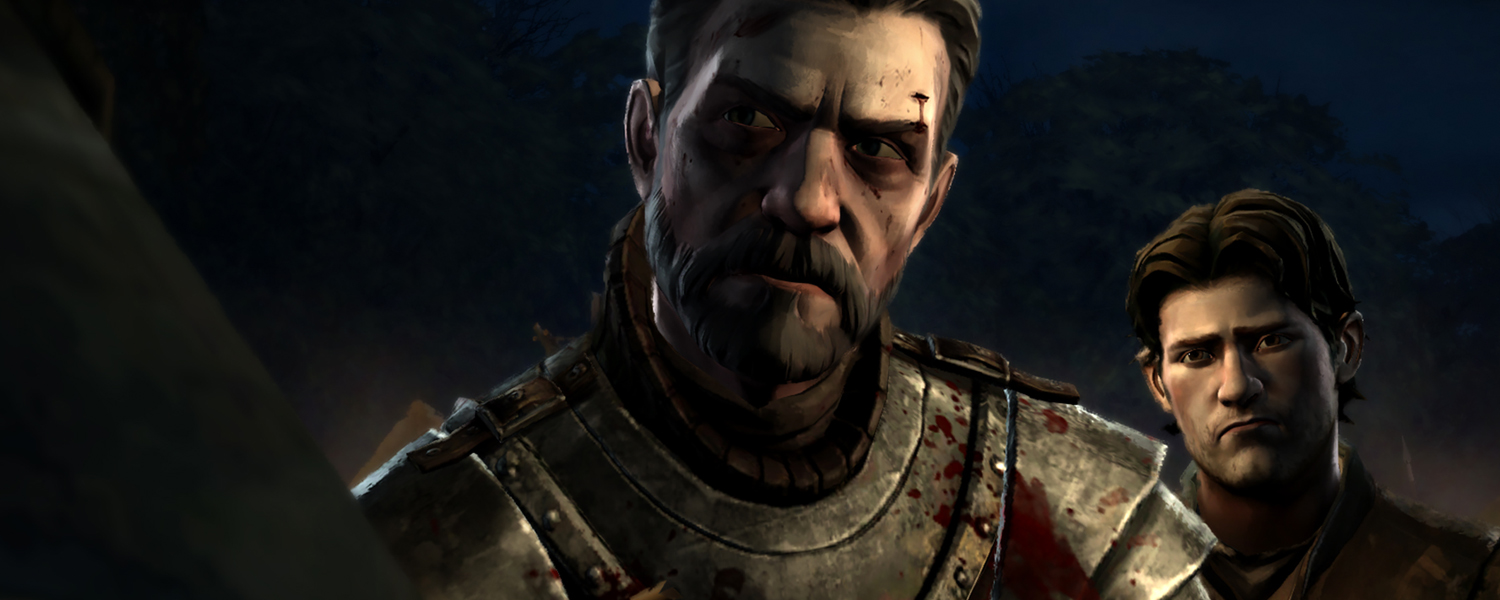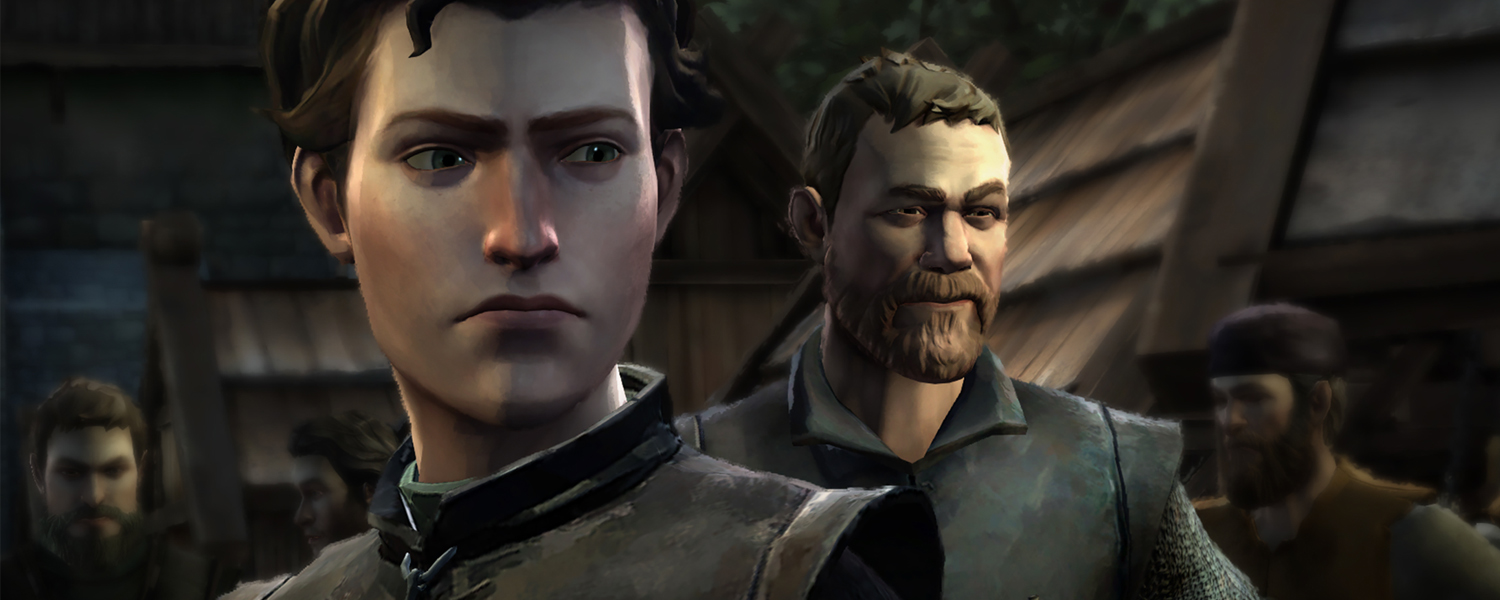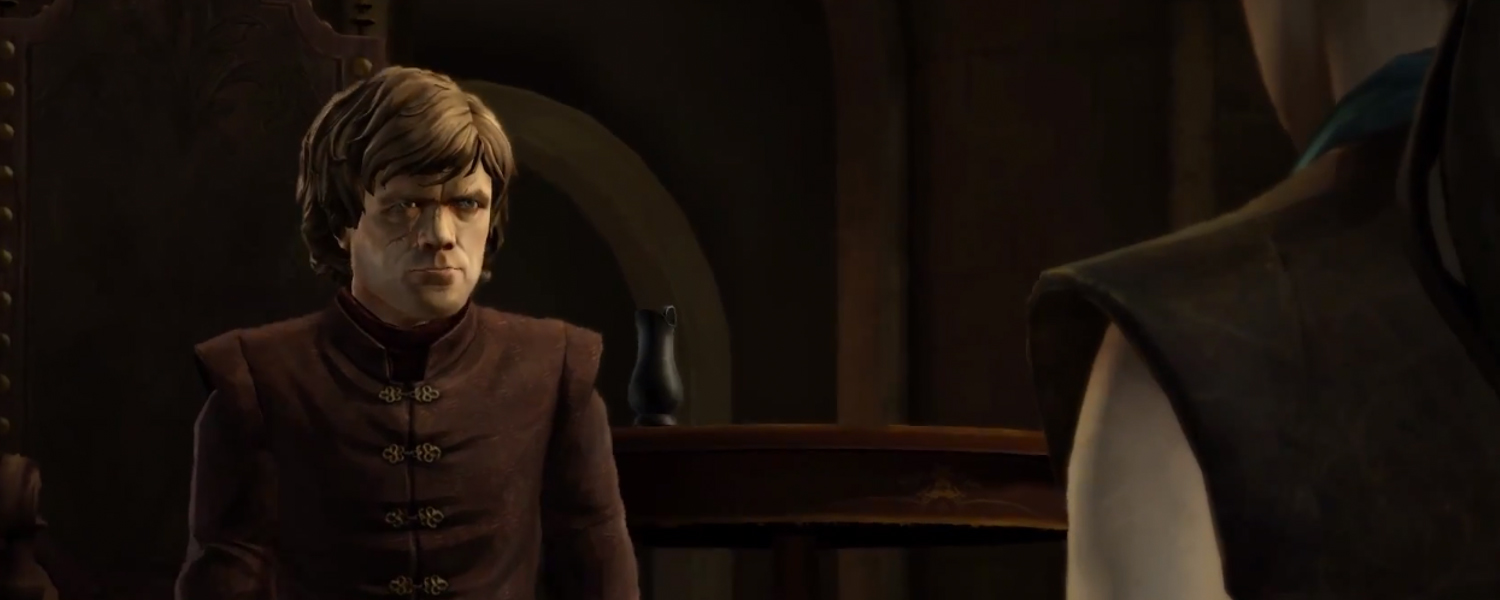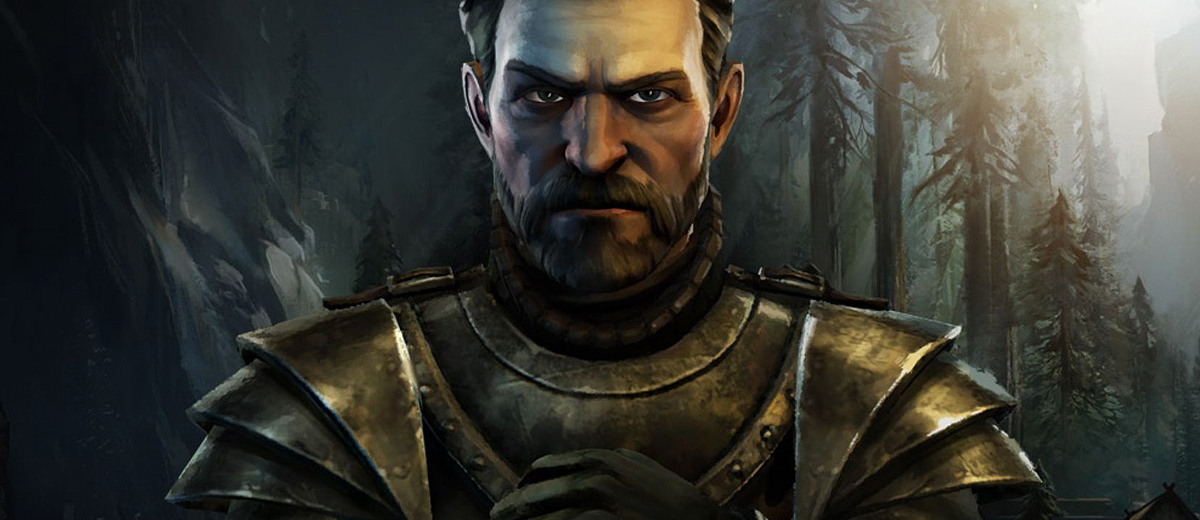 In the past few years Telltale has brought us many adventures like Sam & Max, Tales of Monkey Island, The Wolf Among Us and The Walking Dead, but how does Telltale fare when adapting one of the most popular shows in recent TV history?
In the past few years Telltale has brought us many adventures like Sam & Max, Tales of Monkey Island, The Wolf Among Us and The Walking Dead, but how does Telltale fare when adapting one of the most popular shows in recent TV history?
 It’s hard to delve into a Telltale game without going into spoiler territory, so I’ll work around some of the details so I can stay as spoiler-free as I possibly can.
It’s hard to delve into a Telltale game without going into spoiler territory, so I’ll work around some of the details so I can stay as spoiler-free as I possibly can.
In order to understand the story of Telltale’s Game of Thrones, one will probably need to be familiarized with the actual storyline of the series itself. Game of Thrones is the story of several noble houses who are in the midst of a civial war over the throne that controls all seven kingdoms. Following many dynamic characters from several perspectives around the kingdom Game of Thrones tells a story of the noble, the exiled and the supernatural. This is the basic concept of the show itself, but should give you a starting point on how to get started. It’s hard to summarize the plot of Game of Thrones in a short paragraph, as its dynamics and several point of views make it an intricate web of plot that is better viewed directly.
I might also note that I refer to this game as an adaption of the series, rather than the books. The game follows the continuity of the series, and thus might differ significantly from the books due to certain changes that were made for the series itself. Whilst the protagonists and supporting characters are mostly original, there are returning characters from the show which connect the events of the game to the series itself, which may actually benefit players that have followed the series, as it gives them an insight in what to expect from certain situations and characters. The newly-added characters feel right at home in the Game of Thrones universe however, and as soon as our story starts it really feels like an actual HBO-crafted spin-off of the show. The funny thing is, whilst it’s enjoyable seeing familiar characters on screen, you never seem to miss them after they leave due to the fact that the Forrester’s are so well-written, and seeing their stories develop is much more entertaining than fan-servicing returning characters. Luckily none of these returning characters are there due to fan-service, and their portrayals are quite essential to the story the game is trying to tell.

The first episode focuses on the personal journeys of members of House Forrester, who are heavily affected by the war that is taking place. Spread out over the seven kingdoms ranging from places such as Kings Landing and other familiar locations. The episode starts off on quite a serious note, and a rather significant event from the series initiates the story that Telltale will be telling this season. The characters are well-written, and the events that occurred and have been foreshadowed simply made me more excited for the continuation of the series than I’ve ever been for any Telltale series, which says a lot in my opinion. Your choices still matter, and whilst some events are simply unavoidable due to the writing itself, you still feel like you’re crafting the characters themselves as the story delves into its core. Player experiences may vary, and this is definitely the case with the different protagonists. The episode spends a good amount of time introducing us to the characters, In the two-hours that we’re introduced to all these characters however, you’ll be confronted with decisions that are quite more complex than we’re used to from the Telltale games. This story isn’t about risks or rewards, but sacrifice and survival.
As far as secondary characters go, I don’t think I can recall any characters that seemed badly-written or out of place. Every single character serves its purpose, and as the story progresses you really begin to care about the people surrounding you. Wether they are family, or innocent bystanders, the sense of responsibility given to players is impressive.
 Game of Thrones fares as positively as most of the Telltale games do when it comes to the graphical department. The series is presented in a heavily-stylized fashion akin to cell-shaded animated film. In addition to this stylisation Game of Thrones also adds a filter that makes the overall presentation look more like a water-painting, which is quite aesthetically pleasing considering it mixes quite well with the source material. The effect is quite nice from close-up, though it can create some rough edges on characters and objects, which can be a little distracting during certain scenes despite its intentions.
Game of Thrones fares as positively as most of the Telltale games do when it comes to the graphical department. The series is presented in a heavily-stylized fashion akin to cell-shaded animated film. In addition to this stylisation Game of Thrones also adds a filter that makes the overall presentation look more like a water-painting, which is quite aesthetically pleasing considering it mixes quite well with the source material. The effect is quite nice from close-up, though it can create some rough edges on characters and objects, which can be a little distracting during certain scenes despite its intentions.
Textures in general are a bit muddy, though this is less distracting due to the visual style the game maintains. The bigger problem however is the set of animations, which is getting seemingly stale considering they’re mostly ported over from the developer’s other titles. The animations aren’t necessarily bad, but it’s very apparent that they are aging, and seem rather wooden during certain sequences. Facial animations are adequate, but mostly due to the art style of the characters themselves. Movement however is another story, and whilst I can look past these faults, Telltale might want to upgrade their animation arsenal for their future titles.

The world around the characters themselves incredibly well-designed, and at times I felt like I was actually watching the show itself. From the interiors of the royal throne room to the icy-cold exterior of The Wall, Telltale has done some amazing work in recreating both the architecture and lighting of the show itself, whilst giving its own visual spin on it. The attention to detail is impressive, and they event went as far as recreating the title sequence from the show in their own visual style.
On a performance front Game of Thrones runs very well on Xbox One. The game is presented in 1080p with a frame rate that is reasonably consistent. Micro-stuttering and short pauses aren’t that out of place however, though they are pretty random, so experiences may vary. I didn’t experience any lock-ups throughout the entire episode, though performance weirdly did seem to drop during my second playthrough, which was rather peculiar.
 Gameplay isn’t necessarily a department where you’d spend a lot of time in when reviewing a Telltale game, but it’s an essential part of the verdict none the less. The core gameplay consists of the mechanics you’d expect; choices are made by selecting them through the face buttons of the controller (or the corresponding keys on your keyboard), and at select points during sequences you’ll be prompted to use your left stick to perform certain moves or participate in a quick-time sequence. Ice From Fire is far from combat-oriented however, and you’ll be spending a lot of time in dialogue throughout its two-hour narrative.
Gameplay isn’t necessarily a department where you’d spend a lot of time in when reviewing a Telltale game, but it’s an essential part of the verdict none the less. The core gameplay consists of the mechanics you’d expect; choices are made by selecting them through the face buttons of the controller (or the corresponding keys on your keyboard), and at select points during sequences you’ll be prompted to use your left stick to perform certain moves or participate in a quick-time sequence. Ice From Fire is far from combat-oriented however, and you’ll be spending a lot of time in dialogue throughout its two-hour narrative.
 The episode features a decent amount of exploration through some interior locations, but even this mechanic is pushed aside a little in order to set the stage through dialogue for the events which are to come. This isn’t really a bad thing in this case though, as character interaction is the strongest aspect of the game, and if you’re a fan of the story and gameplay-style, you really won’t be bored by this set-up at all. Choices in the game aren’t easy, and in certain situations players can truly place themselves in problematic scenarios where making a decision in the short-time frame given is harder than you’d expect it to be. For unexperienced players the concept of simply making a decision in a game like this may sound easy, but every choice has consequences, wether it be directly or on the long haul.
The episode features a decent amount of exploration through some interior locations, but even this mechanic is pushed aside a little in order to set the stage through dialogue for the events which are to come. This isn’t really a bad thing in this case though, as character interaction is the strongest aspect of the game, and if you’re a fan of the story and gameplay-style, you really won’t be bored by this set-up at all. Choices in the game aren’t easy, and in certain situations players can truly place themselves in problematic scenarios where making a decision in the short-time frame given is harder than you’d expect it to be. For unexperienced players the concept of simply making a decision in a game like this may sound easy, but every choice has consequences, wether it be directly or on the long haul.



